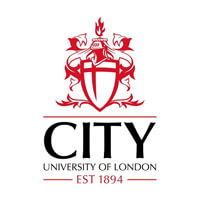fees waived
Therapeutic Radiography and Oncology, BSc (Hons)
City, University of London, United Kingdom
Subject ranking
UK / Guardian 2025 38th
UK / QS 2025 39th
UK / CUG 2025 40th
Costs
food & rentS$24.9K / year
Entry requirements
Scholarships
Limited quantity
Information
Code
Intakes
Website (External)
Programmes
Information
Duration
2028
Course summary
The BSc (Hons) Therapeutic Radiography and Oncology at City provides a route into a rewarding lifelong carer as a Therapeutic Radiographer. The course equips students with the physical, technological, biological and social knowledge required to work within a healthcare team and gain the professional skills and accreditation to practice as a radiographer at the frontline of cancer care. On graduation, students are professionally recognised by the College of Radiographers and are eligible to apply for registration with the Health and Care Professions Council (HCPC) to practise in the UK.1st in London and 2nd in the UK for Health Professions, Guardian University Guide 2025.City is ranked 1st in London for Medical Technology, including Radiography for three consecutive years (Complete University Guide 2019, 2020 and 2021). It is ranked 1st in London for student satisfaction in Medical Technology, including Radiography (NSS 2021 and 2022), and 2nd in London for Radiography (The Times and The Sunday Times Good University Guide 2021). The radiography department at City has one of the best equipped radiography clinical skills suites in the UK, offering radiotherapy planning and a virtual environment radiotherapy training (VERT) treatment room, which creates a fully immersive, life-sized 3D simulation of a radiotherapy treatment room. This provides a unique environment which will mirror many of the facilities encountered whilst undertaking practice placements in the clinical environment.The course is taught by academics who are experts within the field and many of whom are active researchers. Our curriculum concentrates on evidence based teaching and is directly influenced by the research happening within the department which is informing radiography policy and practice. City works in partnership with a range of hospital trusts and students complete clinical placements in leading hospitals across London and Essex including The Royal Free Hospital, University College London Hospital, The London Clinic and St Bartholomew's Hospital in London and in Essex, Queen's Hospital Romford and Southend University Hospital. This course has excellent employability rates; most graduates find employment in the NHS or private hospitals, and graduates may also be able to practise internationally. The compulsory modules in the first year introduce the principles and practice of radiotherapy. Core modules include: You will be assessed using a variety of methods, depending on module choices: Modules
In the second year, students move on to more specialised subjects and begin to apply the knowledge and experience gained in year one. Core modules include:
During the final year, the modules help students to become more critical and evaluative in their work. Core modules include:
- Research exercise or projectAssessment method
- research exercise and self reflective statements.Professional bodies
Professionally accredited courses provide industry-wide recognition of the quality of your qualification.
The compulsory modules in the first year introduce the principles and practice of radiotherapy. Core modules include:
- Common module I
- Common module II
- Principles of radiotherapy practice
- Anatomy, physiology and oncology I
- Anatomy, physiology and oncology II
- Radiotherapy equipment.
- Radiotherapy research and statistics
- Management and radiotherapy technique A
- Competence to practice A
- Radiotherapy physics and planning
- Radiobiology.
- Holistic patient care
- Management and radiotherapy technique B
- Competence to practice B1
- Competence to practice B2
- Healthcare policy and quality management

